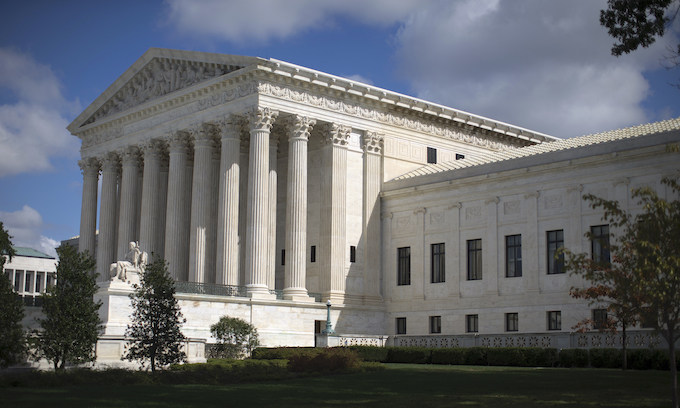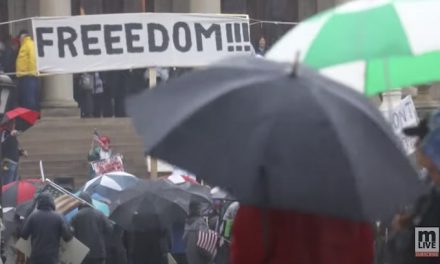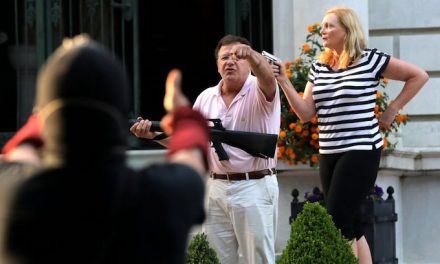The Supreme Court on Thursday fast-tracked an appeal by four federal death row inmates challenging Attorney General William Barr’s efforts to resume federal executions.
The high court granted the four inmates’ request for their case to be expedited, three days after Barr scheduled executions for three of the men next month. The Justice Department has until Friday to respond to the inmates’ appeal.
The four plaintiffs — Daniel Lewis Lee, Wesley Purkey, Alfred Bourgeois and Dustin Lee Honken — sued the Trump administration last year after Barr ordered the Bureau of Prisons to resume carrying out death sentences 16 years after the last federal execution. The plaintiffs were among the first batch of executions scheduled to take place starting in December 2019, but a federal judge imposed a temporary moratorium in response to their lawsuit.
The District of Columbia U.S. Circuit Court of Appeals lifted the injunction in April, giving Barr the green light to reschedule the executions of Lee (July 13), Purkey (July 15), Honken (July 17) and Keith Dwayne Nelson (Aug. 28). Bourgeois’ has not been rescheduled.
The plaintiffs appealed the case to the Supreme Court, where it was awaiting litigation when Barr scheduled the executions.
At issue in the lawsuit is the Justice Department’s plan to institute a uniform lethal injection protocol rather than follow the individual protocols used by each state, which the law requires. Barr proposed using a single drug, pentobarbital, rather than the common three-drug cocktail used in many state executions.
Under a 1994 statute, all federal executions must be carried out in a “manner prescribed by the law of the state in which the sentence is imposed.” Government attorneys had argued the drugs used in the protocol are irrelevant, since the method of execution — lethal injection — is the same.
Cate Stetson, an attorney for one of the death row inmates who challenged Barr’s plan, told UPI earlier this year the federal government “rushed” its execution protocol in order to carry out death sentences.
“The district court’s injunction was aimed at preventing the government from ‘short-circuiting legitimate judicial process’ and serving the public interest by ‘attempting to ensure that the most serious punishment is imposed lawfully,'” she said.
In 2014, former President Barack Obama ordered then-Attorney General Eric Holder to review the use of the death penalty in the United States, effectively implementing a moratorium on executions.
The last federal execution was that of Gulf War veteran Louis Jones Jr. in March 2003 for the rape and murder of a fellow soldier, Pvt. Tracie McBride in 1995.
Jones admitted kidnapping the young female recruit at Goodfellow Air Force Base in San Angelo, Texas, but his lawyer sought clemency by arguing Jones suffered behavior-altering brain damage from exposure to nerve gas during the Gulf War that gave him uncontrollable, violent urges.
Copyright 2020 United Press International, Inc. (UPI). Any reproduction, republication, redistribution and/or modification of any UPI content is expressly prohibited without UPI’s prior written consent.
—-
This content is published through a licensing agreement with Acquire Media using its NewsEdge technology.



















Recent Comments